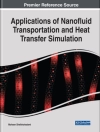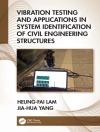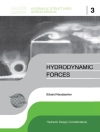This book is written by a group of researchers based on the recent research progress in the fiber/matrix interface degradation under various environmental exposures via molecular dynamics simulation. It provides systematic framework of the model development, simulation techniques, and simulation results and presents the future research directions for investigating the interfacial degradation. By introducing the molecular details of fiber/matrix interface under environmental effects, it advances the fundamental understanding of the interfacial degradation mechanism. Researchers, scientists and engineers in the field of civil engineering and composite materials can benefit from the book. In conclusion, this book provides a computational paradigm and valuable insights on the fundamental interfacial degradation mechanism, which can contribute to the prediction of long-term behavior of fiber-reinforced polymer composites in harsh environments and pave the way for the material design with stronger interface.
表中的内容
Introduction.- Introduction to Molecular Modeling of Fiber/Matrix Interface.- Introduction to Molecular Simulation Techniques of Fiber/Matrix Interface.- Molecular Simulation of Moisture Effect on Epoxy and Epoxy Composites Matrix.- Molecular Simulation of Environmental Effect on Fiber/Matrix Interface.- Concluding Remarks and Future Works.
关于作者
Tam Lik-ho is an Assistant Professor at School of Transportation Science and Engineering at Beihang University. Tam Lik-ho research focuses on the structural design, property characterization, and engineering applications of composite materials and structures using a multiscale and machine learning approach, so as to advance science and engineering knowledge for enhancing structural resilience and reducing carbon footprint of infrastructure systems in transportation engineering. Tam Lik-ho has published over 50 SCI articles, including over 30 first/corresponding-author SCI articles, and has received several grants from National Natural Science Foundation of China and China Postdoctoral Science Foundation.
Wu Ruidong is working as an Assistant Researcher at Railway Engineering Research Institute at China Academy of Railway Sciences Co., Ltd. Wu Ruidong is dedicated to investigating the properties and behaviors of polymer and polymer composite using experimental and simulation methods, aiming to achieve the molecular and property design of polymer and polymer composite to develop novel materials with promising properties. Wu Ruidong has published 6 journal papers and 3 conference papers and enrolled in the Youth Talent Support Project by Beijing Association for Science and Technology in 2024.
Hou Jia-ao is a master student in the Department of Civil Engineering, School of Transportation Science and Engineering at Beihang University. Hou Jia-ao focuses on the research regarding vibration property of FRP composite under environment effect using multiscale simulation and machine learning methods, aiming to promote the durability assessment and safety monitoring of composite structures. Hou Jia-ao has published 4 journal papers and 1 conference paper.
Wu Chao is a Senior Lecturer in Civil Engineering Materials at Imperial College London. Wu Chao is dedicated to transformative research in composite materials and technologies, aiming to enable the new generation of renewable energy infrastructure to achieve Net Zero. The Lab of Composites for Energy Infrastructure (FRP4EI) at Imperial aims to lead this green transition through interdisciplinary research on material science, chemistry, mechanics, Al and modeling. Wu Chao has received research grants around £3.5 million and published over 100 journal papers.












